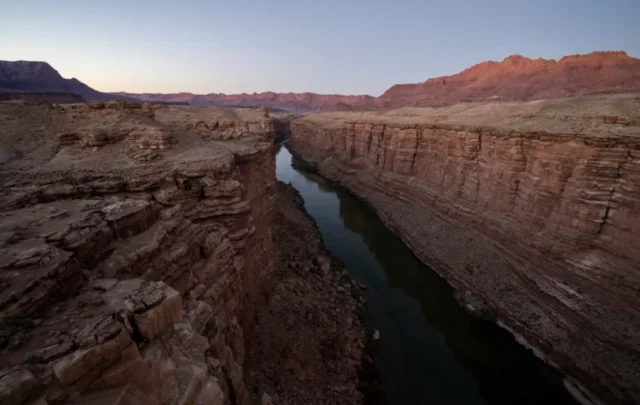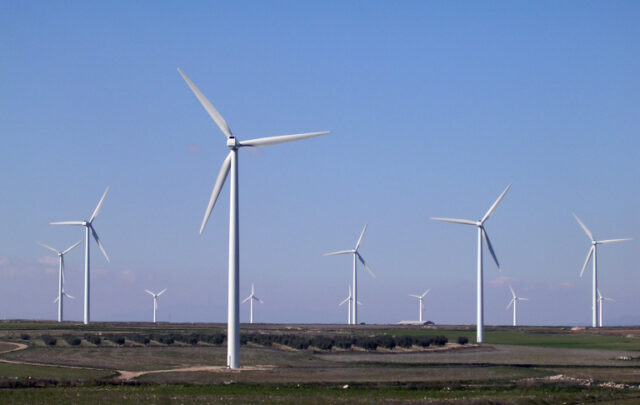Click on the headline (link) for the full text.
Many more articles are available through the Energy Bulletin homepage
Greenspan: Mexico oil output drop may spark crisis
Sydney Morning Herald
Declining oil output in Mexico could spark a major fiscal crisis there, former Federal Reserve Chairman Alan Greenspan said on Wednesday, while also railing against US immigration policy.
“There is no doubt that Mexican overall (oil) production is down and if it continues down, and prices don’t continue up to offset that, then there is a huge fiscal crisis pending,” the former US central banker said via a video link to a business conference in Mexico City.
Mexico, the world’s No. 9 exporter of crude oil and a key supplier to the United States, has seen its oil output taper off from historic peaks in 2004 due to declining yields at its huge but ageing Cantarell offshore field.
State oil monopoly Pemex, which provides more than a third of the country’s fiscal revenues, is now aiming to keep oil production at 3.1 million barrels per day for the next few years, down 8 per cent from a 2004 peak of 3.38 million bpd.
Greenspan said Mexico needs to increase investment in its energy sector, though an amendment to lift a ban on private investment in oil production is “a political issue.”
(14 June 2007)
The scramble for Africa’s oil
Christopher Thompson, New Statesman
Within a decade, the US will be heavily dependent on African oil. Little wonder the Pentagon is preparing a strategy for the region.
The Pentagon is to reorganise its military command structure in response to growing fears that the United States is seriously ill-equipped to fight the war against terrorism in Africa. It is a dramatic move, and an admission that the US must reshape its whole military policy if it is to maintain control of Africa for the duration of what Donald Rumsfeld has called “the long war”. Suddenly the world’s most neglected con tinent is assuming an increasing global importance as the international oil industry begins to exploit more and more of the west coast of Africa’s abundant reserves.
…But it is the west’s increasing dependency on African oil that gives particular urgency to these new directions in the fight against terrorism. Africa’s enormous, and largely untapped, reserves are already more important to the west than most Americans recognise.
In March 2006, speaking before the Senate armed services committee, General James Jones, the then head of Eucom, said: “Africa currently provides over 15 per cent of US oil imports, and recent explorations in the Gulf of Guinea region indicate potential reserves that could account for 25-35 per cent of US imports within the next decade.”
These high-quality reserves – West African oil is typically low in sulphur and thus ideal for refining – are easily accessible by sea to western Europe and the US. In 2005, the US imported more oil from the Gulf of Guinea than it did from Saudi Arabia and Kuwait combined. Within the next ten years it will import more oil from Africa than from the entire Middle East. Western oil giants such as ExxonMobil, Chevron, France’s Total and Britain’s BP and Shell plan to invest tens of billions of dollars in sub-Saharan Africa (far in excess of “aid” inflows to the region).
But though the Gulf of Guinea is one of the few parts of the world where oil production is poised to increase exponentially in the near future, it is also one of the most unstable.
(14 June 2007)
Battle Over Bush Oil Law Proposal
Would Privatize More Oil Fields
Tomas Roman, KGO
The threat of violence is of course a major concern for Iraqis, but so too is how to handle the country’s oil resources. The Bush administration claims its plan to privatize production is the best way to rebuild Iraq’s infrastructure. But representatives from Iraq’s oil industry say the plan gives too much control to foreign interests. They’re touring California right now to convey that message.
Most of the Iraqi oil wells which were destroyed during the first Gulf War and in the past four years may soon be under foreign control. A law backed by the Bush administration and now in Iraq’s parliament would give control of the majority of these fields to foreign oil companies for about 30 years.
Severin Borenstein, U.C. Energy Institute: “There’s a lot of expertise in the United States and in some other oil companies that simply doesn’t exist in Iraq — that they’re going to need to make efficient use of these oil fields.”
The plan is to privatize two thirds of the oil production with Iraq maintaining the other third. Two Iraqi labor leaders spoke in San Jose Sunday. They agree that Iraq needs help. But not so much that it has to give away It is one great natural resource for 30 years.
Faleh Abood Umara, Iraq Federation of Oil Trade Unions: “Improve the oil wells helping in the maintenance then leaving afterwards after getting their money.”
Hashmeya Muhsinhussein is with the Electrical Utility Workers Union. Faleh Abood Umara is with the Federation of Oil Workers . They say the more than 60,000 Iraq electrical and oil workers they represent could strike — paralyzing the country and stopping all oil production if parliament agrees with the Bush administration. Because of their stand they have faced death threats.
(10 June 2007)
Opec biofuel brinkmanship is a sign of things to come
James Murray, BusinessGreen blog
It was always going to happen. Like a lover fearful they are about to get dumped for a younger rival, the Organisation of Petroleum Exporting Countries (Opec) appears to have its scissors poised and ready to cut up the rest of the world’s suits unless it stops flirting with those wanton biofuels.
Oil_flareAccording to the Financial Times, the cartel is now considering getting its retaliation in early by cutting investment in new oil production – a move that would drive oil prices “through the roof” – in response to the West’s plans to increase consumption of biofuels.
Quoted last week in the FT, Abdalla El-Badri, secretary general of Opec, warned that the cartel may reduce investment in new oil production if the US and Europe continues its strategy of replacing a sizable proportion of the oil it uses with biofuels.
…Those that argue peak oil is almost upon us accuse the oil industry of an “institutional jubilance” whereby it is in their interests to make optimistic predictions about supply up to and beyond the point where it begins to dwindle. They also point to the work of Marion King Hubbert, an American geophysicist who unveiled a theory in 1956 that correctly predicted that US oil production would peak in the late sixties or early seventies. Applying the same theory to global production suggests that production is peaking pretty much now and as a result we can expect prices to continue to climb.
Speaking at the recent Library House Cleantech conference, Jeremy Leggett of Solar Century said that while predictions that supply is peaking remain a minority view within the oil industry such forecasts are gaining credence. “[Oil industry] whistleblowers suggest that there is not nearly as much oil out there as we have been led to believe,” he said.
It is worth noting that if we are fast approaching peak oil the OPEC statement would represent a particularly cunning ruse, blaming customers for reduced investment in exploration when there is not much oil left to find.
It is in the context of this uncertainty around when peak oil will begin to bite that the transition towards a low carbon economy becomes as important for economic as much as environmental reasons. It should give governments all the incentive they need to stand up to Opec’s brinkmanship, take the short term pain that will come with increased oil prices on the chin, and increase investment in the development of the alternative fuels that will hopefully allow us to spurn oil once and for all.
(11 June 2007)





